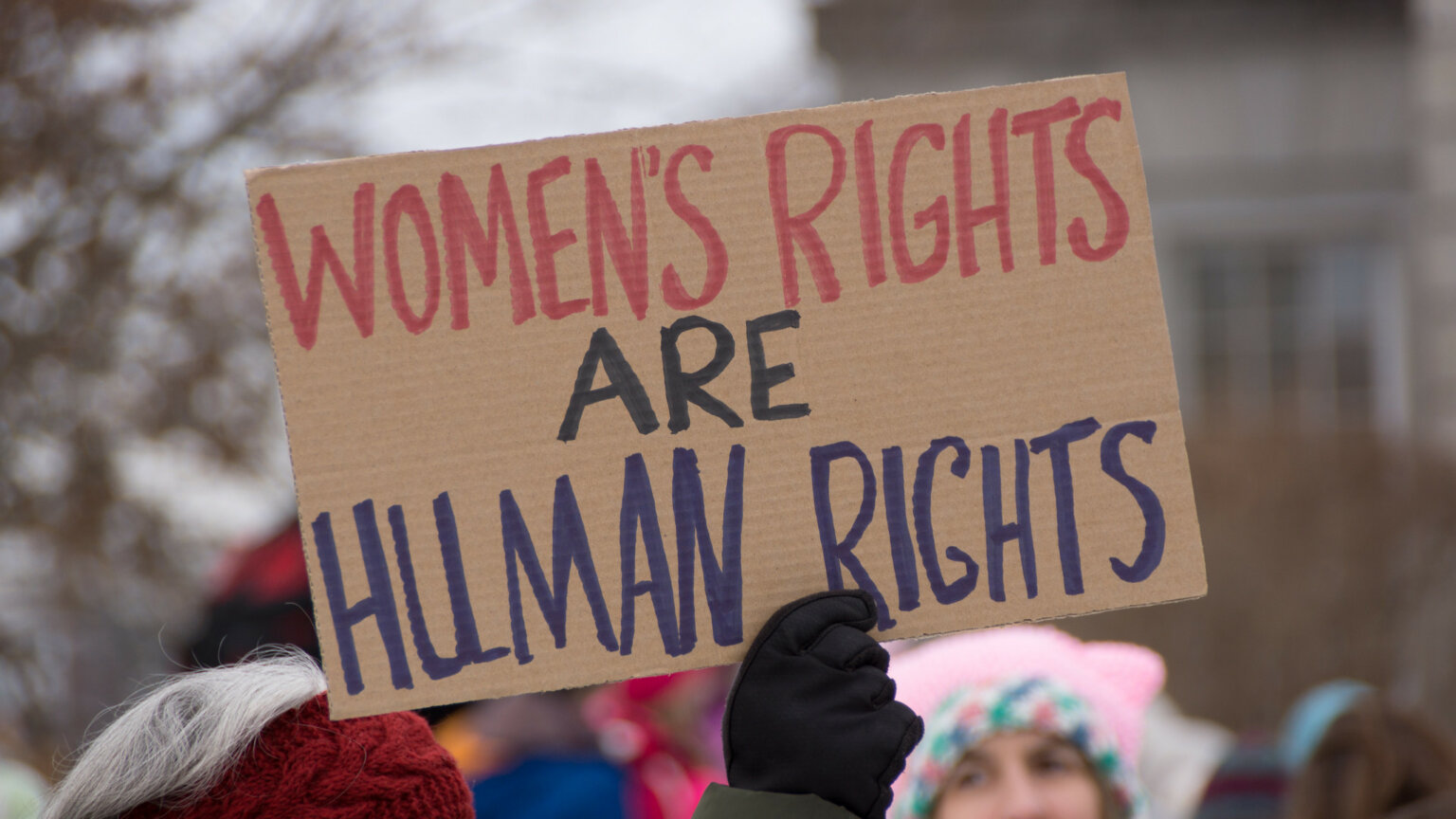- About
- Topics
- Story
- In-Depth
- Picks
- Opinion
- News
- Donate
- Signup for our newsletterOur Editors' Best Picks.Send
Read, Debate: Engage.
| January 19, 2022 | |
|---|---|
| topic: | Women's rights |
| tags: | #China, #women's rights, #gender-based violence, #freedom of speech |
| located: | China |
| by: | Sasha Kong |
Clad in a sharp white blazer, 29-year-old Chinese stand-up comedian Yang Li stood confidently on stage, gracing the audience with her usual sarcasm that has tackled controversial gender inequality at the competition TV series Rock & Roast.
The comedian rose to fame with her punchline, "How can he be so average, yet so full of confidence?" That question triggered an outpouring of criticism in the traditionally patriarchal society, but her speech has also earned her overwhelming support from the awakening women’s rights activists in China.
Yet, although China’s women’s rights are swiftly developing, the movement has faced societal pressure, with some calling activists "man-haters." Yang has been attacked online, and she and other women’s rights activists have been labeled "militant feminists."
In late December last year, Beijing has kicked off discussions around an amendment to the nation's law on women’s rights, which hasn’t been updated for over three decades. The change intends to handle sexual harassment, caesarean birth-related suicides and domestic violence, among other issues, the top government body said in a statement.
"Domestic violence isn’t an ‘internal’ affair, and needs timely and effective intervention to protect the rights of victims of such cases," National People’s Committee member Li Yuefeng said.
This came after Chinese vlogger Lhamo was attacked by her former husband, Tang Lu, while she was live-streaming in September last year. Tang splashed Lhamo with a bucket of petrol and set her on fire as she was live on camera. The 30-year-old died two weeks later, fueling public rage over fatal violence against women in the country.
It was not until 2016, when Beijing revamped its law of domestic violence, that victims were finally offered a habeas corpus system which bans harassment, stalking and other threatening behaviours within three days of application. In July last year, Zhejiang province launched a system that allows users to check their partners’ history of domestic violence.
Living in a family-oriented society, one in five Chinese face different levels of domestic violence, 10 percent of which involve murder and manslaughter, showed a 2015 survey by Beijing-based women’s rights NGO Equality.
China also plans to offer women the right to make an independent decision for a caesarean birth, which currently is only possible with the husband’s permission in hospitals. At the workplace, employers will face punishment under the proposed amendment if they fire or slash a woman’s salary for family planning, pregnancy or taking maternity leave.
Human Rights Watch senior China researcher Yaqiu Wang, who grew up in China and is now based in New York working on defending women’s rights, views China’s law amendments for women as mostly a "lip service."
"China is a Communist country where women’s emancipation is a fundamental state ideology, so the government has to at least pay lip service to women’s gender equality, and in a way, the government has enacted laws and regulations over the years to try to protect women’s rights,” the China-born researcher told FairPlanet.
The key, she said, lies in enforcement of the updated laws.
“[The amendment proposal] is a big step […] but the regulations aren’t enforced. Even if the government passes the bill of amendment to women’s rights law, if it's not enforced, it doesn’t really matter," she explained.
"There are regulations [proposed] by the government now that you cannot ask about a woman’s family planning or whether she’s pregnant during a [job] interview. But employers still do that because the law is not enforced."
In a Communist country like China, the hindrance to expanding women’s rights cannot be completely separated from political suppression, Wang added.
"Although the demand [for gender equality] is very strong, and people feel very strongly about it, the [government’s] repression feels so harsh and overwhelming," she said.
Sophia Huang Xueqin, a major women’s rights activist in China, has lost contact with her friends since September last year. She was one of the leading figures of the nation’s #MeToo movement in 2018 for assisting an alleged sexual harassment victim who accused a university professor.
Huang’s disappearance is merely the tip of the iceberg in the Asian country that has a track record of crushing dissent.
"[China] tries to stamp out any kind of independent voices, and any kind of independent activism," Wang said. " The #MeToo movement is a grassroots’ independent activism - it’s about women coming forward to speak up, tell their stories and challenge the patriarchal system; who feel that women’s rights and gender equality are inherent to them."
"But those ideas are very threatening to a government that wants to control everything. That is why the government is being inconsistent [in developing women’s rights]."
In 2015, China detained five activists for their plans to rally against sexual harassment on public transport, which triggered an international uproar. A month later, China released them on bail.
Detention and attempts to gag their online activism, however, did not stop many Chinese women from debating the issues and fighting for gender equality.
"I think the biggest achievement [concerning women’s rights in China] is from the civil society, in which regular women are encouraged and are willing to speak up against gender inequality and sexual harassment. You can see this eruption of support for women’s rights online," Wang said.
Image by Jorge Salvador
By copying the embed code below, you agree to adhere to our republishing guidelines.
